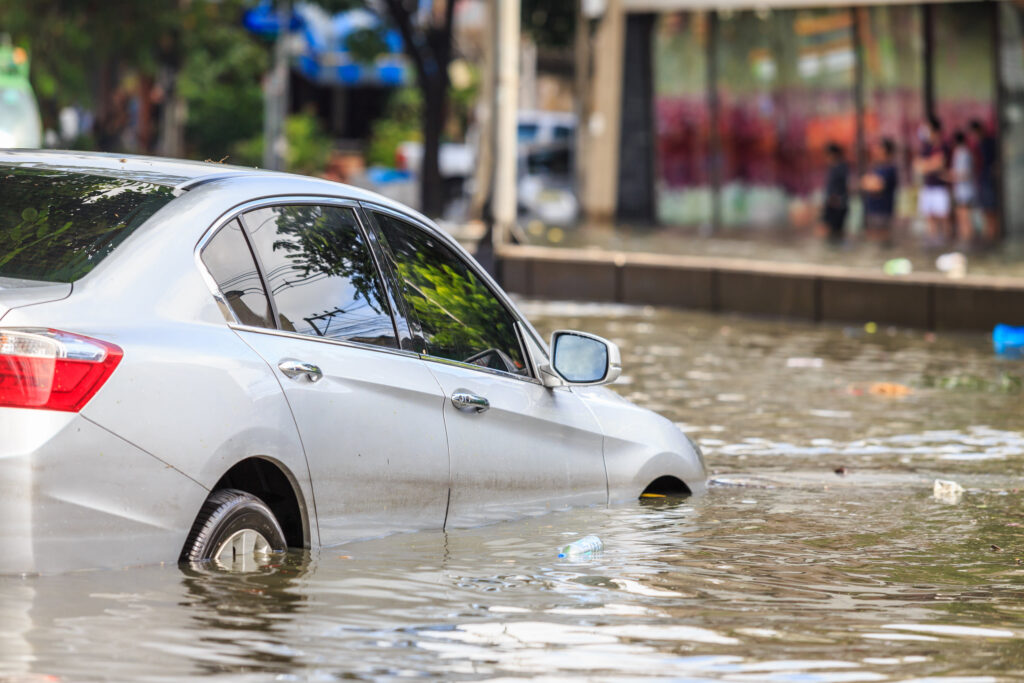
May through August are typically the wettest months in Tennessee. With the “wet season” just starting, it’s a good time to review your Tennessee flash flood safety practices so that you and the drivers in your family can avoid a weather-related car accident. Many people underestimate the power of nature and are surprised by the destruction it can cause. Last year a catastrophic flood swept through rural Middle Tennessee that resulted in 22 deaths in August. During recovery, roads and bridges were also closed because of excessive water and debris. Unfortunately, what some individuals may not have realized is that their vehicle could easily be swept away with as little as two feet of water. To help keep you and any other drivers in your household from being injured in a Tennessee flood-related car accident, Lerner and Rowe has put together the following safety tips.
How to Drive Safely During a Tennessee Flash Flood
Preparing yourself for the possibility of a Middle Tennessee flash flood is just one way you can help protect you and any passengers if waters should suddenly rise. Here are five things to keep in mind if you find yourself on the road during a Tennessee flash flood.
1. Remain Calm
Driving in the rain with low visibility can be stressful. Then, coming across flooded roads can increase your anxiety causing you to make unsafe decisions that can result in a car accident. Just try to remain calm and carefully evaluate your surroundings.
If you find yourself approaching a flooded road, stop, and turn around. Do not attempt to drive through it as it may be deeper than it appears. In fact, the National Weather Service (NWS) recommends that drivers do just that.
2. Know When to Abandon Your Car
Should you find yourself suddenly stuck with water quickly rising up to your doors, get out. If you need to, exit through a window or a sunroof. Once you are out of the car, get out of the water and up to higher ground as soon as possible. Even a few inches of moving water can knock you off your feet. Flood waters can also be full of sharp or heavy debris, unhealthy bacteria, and scared animals that may bite you.
3. Watch Out for Fallen Trees and Power Lines
Severe thunderstorms and rushing water can loosen tree limbs and power lines, knocking them down into the road. Either of these roadblocks create a dangerous hazard. However, a downed power line could also mean that the water is now electrically charged. This could result in a major electrocution injury should you try to exit your vehicle for any reason. Just as previously suggested, turn around and look for a safer alternative.
4. Windshield Wipers and Headlights
On average, you should check the quality of your wipers at least once a year. Furthermore, check that your wiper fluid does not get low. You should also make sure that your headlights work. It’s not only good to get in the habit of doing so, but Tennessee law also requires drivers to use their headlights during periods of poor visibility.
5. Leave Room Between Your Vehicle and Other Cars
Slick roads equal a longer stopping distance. To help ensure that your bumper does not collide with another vehicle when it’s wet and rainy out, make sure that you leave more distance than usual between your vehicle and others. Consequently, tailgating may result in hydroplaning and loss of control if you are forced to slam on your brakes.
Tennessee Flash Flood Attorneys
Some drivers do not know how to drive safely during a flash flood. If you find yourself hurt in a wreck during a flash flood because of another driver’s negligent behavior, they may be liable for damages. Government agencies may also be held liable if a poorly-maintained road during a flood in any way contributed to you being harmed in a car accident.
Unsure about your legal options after a car accident during a flood? Contact our Nashville personal injury team for a free 24/7 consultation to learn more. Just call 615-333-8888, or chat with a Live representative now. You might be entitled to a settlement after a traffic incident that occurred in relation to a Middle Tennessee flash flood.



